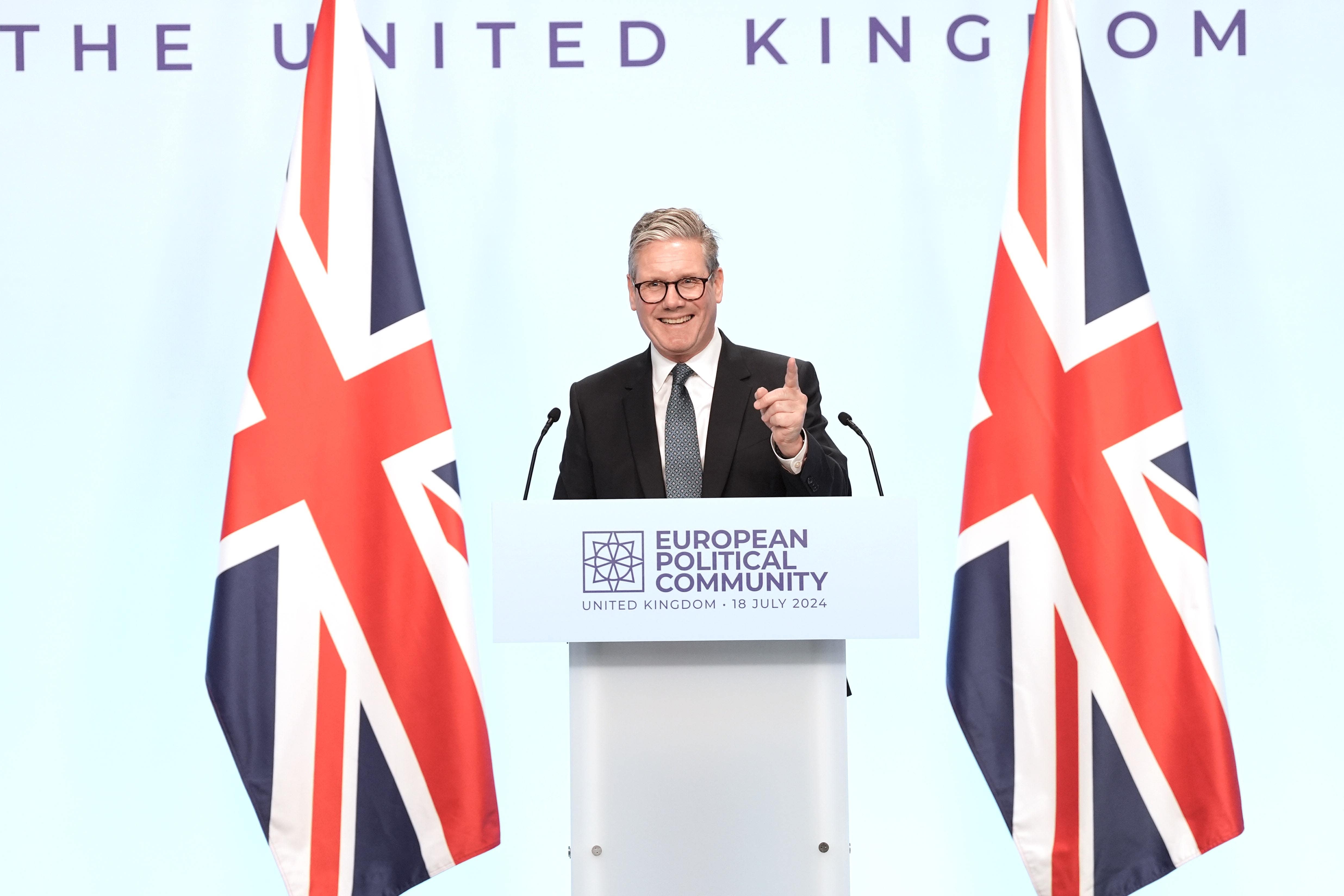European neighbours did not urge me to take UK back into EU, says PM
Sir Keir Starmer also confirmed EU laws would not be applied in the UK without the consent of MPs.

Your support helps us to tell the story
From reproductive rights to climate change to Big Tech, The Independent is on the ground when the story is developing. Whether it's investigating the financials of Elon Musk's pro-Trump PAC or producing our latest documentary, 'The A Word', which shines a light on the American women fighting for reproductive rights, we know how important it is to parse out the facts from the messaging.
At such a critical moment in US history, we need reporters on the ground. Your donation allows us to keep sending journalists to speak to both sides of the story.
The Independent is trusted by Americans across the entire political spectrum. And unlike many other quality news outlets, we choose not to lock Americans out of our reporting and analysis with paywalls. We believe quality journalism should be available to everyone, paid for by those who can afford it.
Your support makes all the difference.The Prime Minister has said the UK’s European Union neighbours did not urge him to rejoin them.
Sir Keir Starmer made the comments during a House of Commons statement on the 47-member European Political Community (EPC) summit which took place at Blenheim Palace in Oxfordshire last Thursday, and the Nato summit in Washington DC earlier this month.
Sir Keir told MPs that migration featured among the discussions with other European leaders, as he committed the UK to a “reset” relationship with European nations.
He said: “We had a very full discussion about illegal migration, about the law enforcement aspect of it, as I’ve explained, but also about the root causes of migration – conflict, poverty and climate change being key among them.”
I think we can have a better relationship, but I don't think we can simply ignore the referendum and go back into the EU
Plaid Cymru Westminster leader Liz Saville Roberts questioned the Prime Minister’s decision not to rejoin the EU’s economic structures, adding: “A core element of collective European security is collective economic security.”
Sir Keir replied: “I think we can have a better relationship, but I don’t think we can simply ignore the referendum and go back into the EU.
“And in the discussions I had with our European allies, none of them were urging us to take that course. They were interested in the argument we were making about a better relationship and how that can work in relation to trade, in relation to education, in relation to security and defence.”
During the statement, Sir Keir also confirmed EU laws would not be applied in the UK without the consent of MPs.
This came in response to Conservative MP Mike Wood (Kingswinford and South Staffordshire), who said: “Can the Prime Minister confirm that his Government will not accept EU rules automatically applying in Britain, unless they have been specifically agreed by this Parliament?”
The Prime Minister replied: “Yes.”
Tory former culture secretary Sir John Whittingdale asked about support for Armenia, to the east of Turkey, “both in resolving its conflict with Azerbaijan but also in pursuing its ambition to move closer to Nato and to the EU in the face of Russian threats and intimidation”.
Sir Keir said “this did come up” at Blenheim Palace with a “joint resolve to provide the support that is needed, the framework that is needed for peace and security across the entire region”.
Former prime minister Rishi Sunak warned the Prime Minister of the “trade-offs” involved in pursuing a security and defence co-operation pact with the European Union.
He urged Sir Keir “in his conversations with other European leaders to keep the option of further third country migration partnerships on the table as other countries have been discussing”, after the end of the previous government’s proposal to send some asylum seekers to Rwanda.
The leader of the Opposition said: “I hope (Sir Keir) can reassure the House that any closer co-operation with the EU will not adversely affect the technological and procurement aspects of our other alliances such as Aukus (the Australia, UK and United States partnership).”